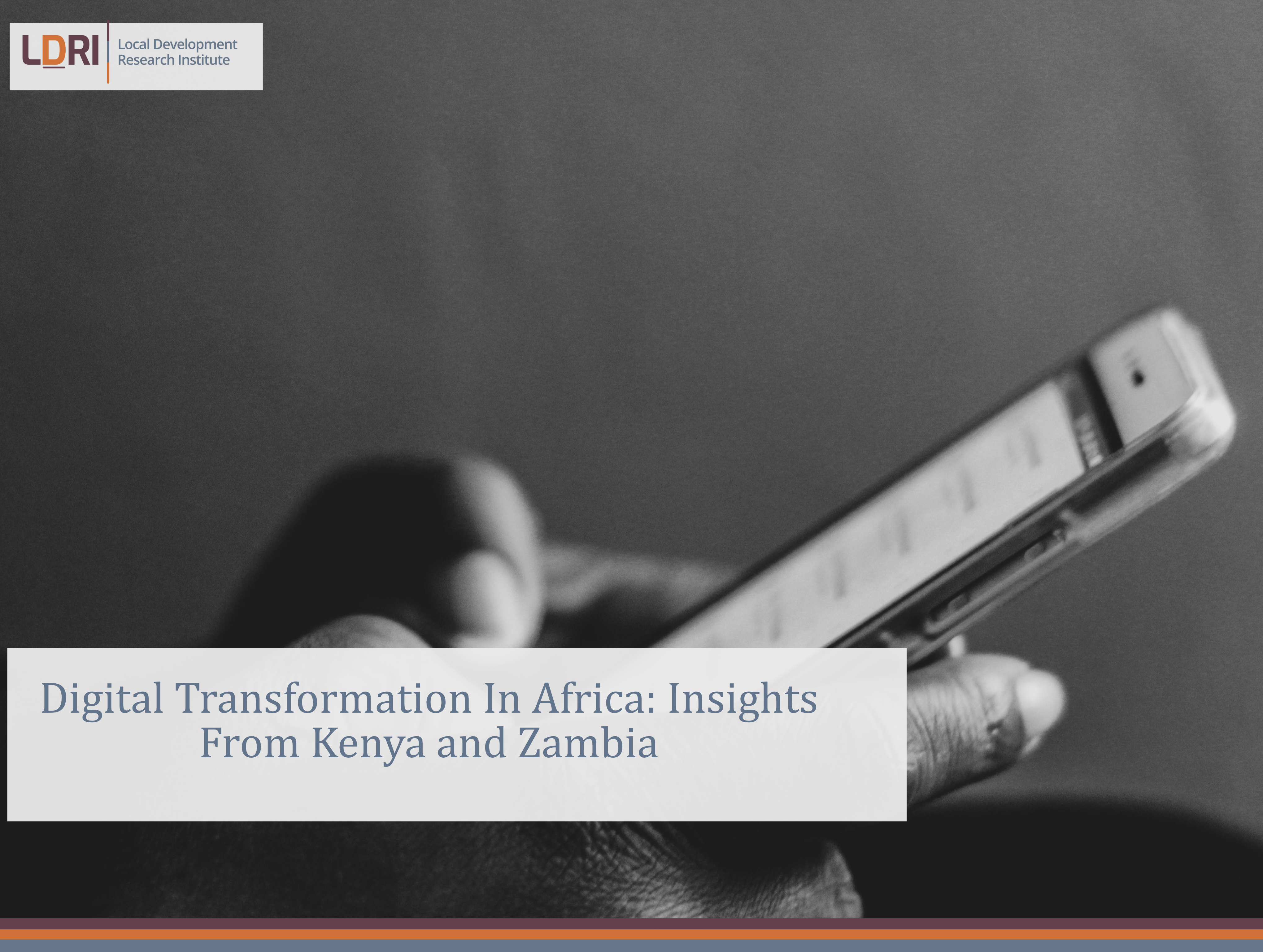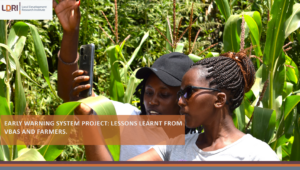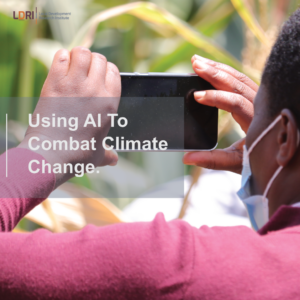![]()
Digital Transformation In Africa: Insights From Kenya and Zambia

This blog is the first in a series exploring the digital services landscape and data governance in Kenya and Zambia.
The rising uptake of digital technologies and services, including digital IDs, has significantly increased the amount and granularity of personal data collected, accessed and shared by governments and private sector entities. Consequently, it is imperative for these institutions to communicate transparently with citizens about the purpose of data collection and provide clear options to opt in or out. Establishing such communication and engagement frameworks yields multiple benefits:
- Building Trust: Assuring citizens that their data is used responsibly and for legitimate purposes fosters confidence in institutions.
- Ensuring Compliance: Adhering to data protection and access-to-information laws bolsters legal accountability.
- Promoting Digital Rights: Educating citizens on their rights—such as access to data, rectification of inaccuracies, data erasure, and complaint mechanisms—ensures that even vulnerable groups, such as women, are protected.
The Local Development Research Institute (LDRI), supported by Canada’s International Development Research Centre and the D4D network, is conducting research in Kenya and Zambia to help country’s design participatory digital governance mechanisms. Both countries have progressive digital services and it’s important for them to codify engagement mechanisms in their data policies and codes of conduct as a means to consistently meet their responsibilities towards citizens.
This blog is the first in a series exploring the digital services landscape and data governance in Kenya and Zambia.
Digital Services and AI: Opportunities and Challenges
In the last few months, there has been a surge of conversations around digital transformation in Africa, especially concerning artificial intelligence, the provision of digital government services and the challenges of data governance. These conversations have been driven by several factors: the accelerating adoption of digital technologies, the increasing integration of artificial intelligence in key sectors such as agriculture, education, health, and the urgent need for better data governance frameworks to support these advancements. From these conversations key questions arise: How can we ensure that these technologies are used responsibly and with equitable outcomes? What governance frameworks are necessary to support digital service provision in Africa, and what specific challenges do countries like Kenya and Zambia have to overcome?
Without robust data governance, the risks—such as misuse of personal data or widening digital divides—could outweigh the benefits.
Both Kenya and Zambia have demonstrated a commitment to digital transformation through comprehensive policies:
- Kenya: The National ICT Policy (2019) and the Digital Economy Blueprint envision a digitally empowered society.
- Zambia: The Smart Zambia Master Plan (2018) aims to promote digital inclusion and improve service delivery.
These policies tackle key challenges, including inefficiency in service delivery by digitizing processes to reduce bureaucracy and enhance response times. They also address geographical barriers by enabling citizens in remote areas to access government services without the need for extensive travel. Additionally, these systems increase transparency and reduce opportunities for corruption, fostering greater public trust. Furthermore, digital platforms improve data collection and management, supporting informed decision-making and more effective governance. These initiatives demonstrate a shared understanding of the transformative potential of digital technologies to transform economies, improve governance, and enhance the quality of life for citizens.
Despite progress, Kenya and Zambia face data-governance challenges that impact their digital transformation journeys:
- Infrastructure Gaps:
- As of 2024, 59.2% of the Kenyan population lacked internet access, with rural areas disproportionately affected. Initiatives like Huduma Centers bridge this gap by offering physical access points for digital services.
- Zambia faces similar issues, with only 31.2% internet penetration. The Smart Zambia Project focuses on improving electricity and ICT infrastructure in rural areas.
- Digital Literacy:
- Low levels of digital literacy, especially in rural areas, hinder the adoption of digital services.This is more pronounced in Zambia, where the literacy rate (70.6%) is lower than in Kenya (81.5%). Kenya has launched initiatives like Ajira Digital to enhance digital skills, while Zambia integrates digital literacy into school curricula.
- Data Privacy and Security:
- As more services move online, ensuring the security of personal data becomes crucial. Kenya’s Data Protection Act (2019) and Zambia’s Data Protection Act (2021) are pivotal, though implementation challenges remain particularly in ensuring that all sectors comply with the new regulations.
- Resistance to Change:
- Both citizens and government employees may resist the shift to digital services due to unfamiliarity or fear of job losses. Both countries are addressing resistance through capacity-building programs for public servants and sensitization campaigns for citizens. For example in Kenya, the Kenya School of Government has introduced capacity-building courses that train public servants on how to use digital platforms effectively and understand the advantages of digital workflows. These programs include sessions on digital literacy, and data management, helping alleviate fears about job security while promoting efficiency.
- Financial Constraints:
- Developing and maintaining digital infrastructure and services requires significant investment, which is challenging for resource-constrained governments. Recognising this, the Zambian government is exploring public-private partnerships (PPPs) to secure funding and technical expertise for ICT projects. Private sector organizations such as Huawei have provided financial and technical support to Zambia’s digital initiatives. Huawei is working on a $75 million project to deploy 5G networks in major urban areas, in partnership with the state owned telecommunications company Zamtel. In Kenya, the World Bank approved funding for the Kenya Digital Economy Acceleration Project (KDEAP) to support the expansion of digital infrastructure and boost digital public services across the country.
- Linguistic Diversity:
- In Kenya, there are over 40 ethnic groups, with 60 languages spoken, and in Zambia, over 70 languages are spoken. Most digital services prioritize a few languages such as English, further excluding marginalized communities. Inclusive design is critical to bridging this gap.
7. Interoperability issues:
- Different government departments often use incompatible systems, making it difficult to integrate services and share data effectively. In Zambia, the Government Service Bus aims to create an integrated and interoperable system for all government services. This will allow different ministries and agencies to share data seamlessly, reducing redundancy and improving efficiency. In Kenya, the e-citizen platform is a notable example of how the government has successfully integrated various services under one unified system facilitating data sharing between different government agencies, improving efficiency in service delivery.
Moving Forward
Kenya and Zambia’s digital transformation efforts align with broader frameworks like the African Union’s Agenda 2063 and the Africa Digital Compact. These frameworks emphasize inclusivity, ethical digital practices, and collaboration among stakeholders to create equitable digital ecosystems.
For both countries, the road ahead requires prioritizing robust digital identity systems, expanding digital infrastructure, and fostering inclusive digital literacy initiatives. By aligning national policies with regional and global frameworks, Kenya and Zambia can drive technological advancement while upholding citizens’ rights and fostering social equity.
Author: Glory Nkatha and Vwanzy Siwale



